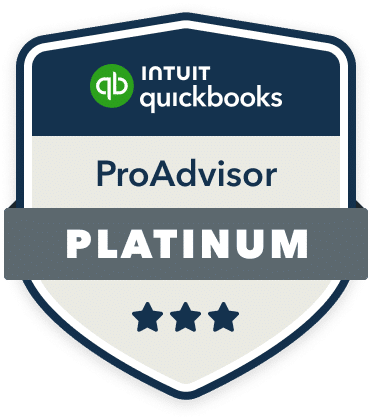If you’re a business owner in Ohio, it’s important to know that your business is subject to several state taxes depending on how it is structured, how much money it makes, and which industry it’s in.
In this guide, we’re going to take you through every business tax you need to consider if your business is incorporated in Ohio in 2023.
Just want to know the key points? Here is a summary of what we’ll cover:
- There is no corporate income tax in Ohio, but all businesses making over $150,000 in gross receipts will have to pay CAT.
- If you own a pass-through entity—an S corporation, LLC, partnership, or sole proprietorship—your share of your business’s net income will be taxed at your individual tax rate.
- You may be responsible for other federal and state taxes, too, depending on your business type and industry, such as self-employment tax, sales and use tax, payroll tax, employee taxes, etc.
- If your business is based in Ohio but operates in another state, you may owe taxes there as well. If your business is originally from another state but operates in Ohio, you may owe Ohio taxes.
Ready to learn more?
Let’s dive in.
Ohio Commercial Activity Tax (CAT)
Ohio has a pretty unique approach to business taxes compared to other states. Unlike most states, Ohio doesn’t have a corporate income tax or franchise tax. Instead, we have something called the commercial activity tax (or CAT for short).
So, what’s the CAT all about? Well, it’s a tax that’s based on your business’s gross receipts (the total amount of revenue coming into your business from all sources). And it applies to most businesses, regardless of structure.
So whether you’re a C corporation, an S corporation, a partnership, or an LLC, you’ll likely need to pay the CAT if your gross receipts are over a certain amount.
Here’s a breakdown of how much commercial activity tax (CAT) you’ll have to pay based on your business’s gross receipts in 2023:
No tax: gross receipts less than $150,000
- $150 tax: gross receipts from $150,000 to $1 million
- $800 tax: gross receipts over $1 million up to $2 million
- $2,100 tax: gross receipts over $2 million up to $4 million
- $2,600 base tax + 0.26% of gross receipts: gross receipts over $4 million
And here’s a breakdown of when the CAT is due for most of these businesses:
- May 10
- August 10
- November 10
- February 10
Note, if your business makes over $1 million in gross receipts, you’ll need to pay the CAT on the tenth day of the second month, following each tax period.
Confusing, we know!
Overall, while the CAT might seem complicated at first, it’s just another way for Ohio to generate revenue from businesses.
And like any other tax, it’s important to make sure you’re reporting your gross receipts accurately so you don’t end up owing more than you need to.
This is where we recommend working with an experienced Ohio-based accountant who can help you strategically save more on taxes.
If you don’t have an experienced Ohio business accountant already, we’re always here to help.
Ohio State Personal Income Tax
In addition to the commercial activity tax we just discussed, Ohio also has a personal income tax that applies to individuals and some types of businesses, like partnerships, sole proprietorships, s-corporations, and LLCs.
If your business falls under one of these structures, it means that any income from your business that flows through to you (and any other owners) is also taxed at an individual tax rate.
The personal income tax rate in Ohio varies depending on how much income you make. If you don’t make very much money, you might not owe any income tax at all. But if you make a lot of money, your tax rate could be as high as 3.99%.
It’s worth noting again that the personal income tax is different from the CAT in that it applies to individuals rather than businesses themselves.
So even if your business doesn’t owe any commercial activity tax, you might still have to pay personal income tax on the income you receive from your business.

Ohio State Sales Tax
If you are doing business in Ohio or planning to ship there, it’s important to know whether you’re liable for sales taxes. We will have an entire blog post dedicated to state sales tax in the upcoming weeks, but for now, let’s go through a few of the basics.
What’s taxable in Ohio?
Services like those provided by lawyers, architects, and landscapers are taxable, but there are exemptions, so it’s best to check with the Ohio Department of Revenue or your experienced Ohio accountant to confirm.
Tangible products are also subject to sales tax, but there can be exemptions as well. Digital products and SaaS products are taxable too, but it’s always best to double-check on the Ohio Department of Revenue website.
Determining Nexus in Ohio
The next thing you need to determine is whether you have nexus in Ohio. Nexus refers to a commercial connection in the state, and if you have nexus, you’re obligated to collect sales tax on your sales in Ohio.
You likely have nexus if you have a physical presence in Ohio, advertise online on an Ohio-based website, or have significant sales in Ohio within twelve months.
If you have nexus, you need to register for a sales tax permit. It’s illegal to collect tax without one, so make sure to register first. You can find instructions on how to register on the Ohio Department of Revenue website.
Collecting Sales Tax in Ohio
Now, let’s talk about how to collect sales tax in Ohio. Sales taxes are collected by you at the point of purchase and then paid to the Department of Revenue.
Tax rates can vary based on your location and your customer’s location, as well as the levels of sales tax that apply in those specific locations.
The state-wide sales tax in Ohio is 5.75%, but there are additional levels of sales tax at the local level to be aware of, as well.
Origin-based Sales Tax System
Ohio has an origin-based sales tax system, which means that if you’re a local business, you must charge the tax rate based on your location in Ohio, plus any local taxes if necessary.
If you have multiple locations in Ohio, charge the sales tax rate of where the sale occurred. If you’re not based in Ohio but have nexus in the state, you may charge only the 5.75% use tax rate.
It’s important to note that this may not always be true for remote sellers, so it’s best to contact the state’s Department of Revenue or your experienced business accountant to be sure.
Employer Withholding Tax
Next, let’s talk about employer withholding tax.
If you have employees, you’re responsible for withholding individual Ohio income tax from their pay.
This means that you are responsible for calculating and deducting the appropriate amount of Ohio state income tax from each employee’s paycheck, based on their earnings and withholding allowances. The withheld tax must then be remitted to the Ohio Department of Taxation on a regular basis.
In addition to withholding state income tax, you may also be required to withhold and remit other taxes from your employees’ pay, such as federal income tax, Social Security and Medicare taxes (collectively known as FICA), and state unemployment tax. These requirements can vary based on factors such as your business structure, the type of work your employees perform, and the amount of money they earn.
Payroll taxes are always tricky. It’s best to work with your Ohio-based business accountant to determine the accurate amount to withhold from your employees.
If you don’t have an Ohio-based business accountant you’re happy with, you can chat with one of our accountants anytime.
Industry-Specific Tax
If you’re in the business of selling certain goods like alcohol, tobacco, or gasoline, you might also owe industry-specific taxes in Ohio.
For example, businesses that sell alcohol are subject to the Ohio Alcoholic Beverage Tax, which is a tax on the sale of beer, wine, and spirits in the state. The tax rate varies depending on the type of alcohol being sold and the alcohol content.
Similarly, businesses that sell tobacco products are subject to the Ohio Tobacco Products Tax, which is a tax on the sale of cigarettes, cigars, and other tobacco products. The tax rate for tobacco products also varies depending on the type of product being sold.
Finally, businesses that sell gasoline in Ohio are subject to the Ohio Motor Fuel Tax, which is a tax on the sale of gasoline and diesel fuel in the state. The tax rate for motor fuel is set by the Ohio Department of Taxation and can change periodically.
It’s important for businesses to be aware of these industry-specific taxes and to ensure they are complying with all applicable tax laws and regulations.
Failing to do so could result in penalties and fines.
Multi-State Business Taxes
Finally, it’s important to understand how your business is taxed if it’s based in Ohio but also conducts business in other states.
In this case, we need to revisit the concept of “nexus” again.
When a business has a nexus with a state, it means that the business has a significant presence or connection with that state, such as having employees, owning property, or making sales in the state. When a business has a nexus with a state other than Ohio, it may be subject to taxes in that state as well.
For example, let’s say your business is based in Ohio but also has a physical store in Indiana. Because your business has a physical presence in Indiana, you have a nexus with Indiana and may be subject to Indiana taxes on your sales in that state.
Alternatively, if your business was originally formed in another state but operates in Ohio, you may still owe taxes in Ohio because you have a nexus with the state. For example, if your business was formed in Michigan but you have a warehouse and employees in Ohio, you would likely owe Ohio taxes on your sales in the state.
It’s important to note that each state has its own tax laws and regulations, so it’s crucial for businesses to understand their tax obligations in every state where they have a nexus.
The concept of nexus and multistate businesses is complicated even for seasoned business owners, so we highly recommend speaking with an experienced business accountant to help you determine the accurate taxes owed for your specific business.

Need More Help with Your Ohio State Taxation?
We hope today’s comprehensive guide on Ohio state taxation for businesses has helped!
If you need additional guidance, we’re always here to answer any questions you have. Here at ZenStrategies, we’ve been helping Ohio-based business owners strategically plan and calculate their taxes for over 20 years.
We’re well-versed in both state and federal tax legislation, and take a holistic approach to business advisory, helping business owners look at the full picture of their business in order to reduce taxes and grow their profits year-on-year.
If you’d like to chat about how we can improve your business finances, you can get in touch with us anytime.
Book a chat with one of our accountants by filling in the form here.
Until next time!




